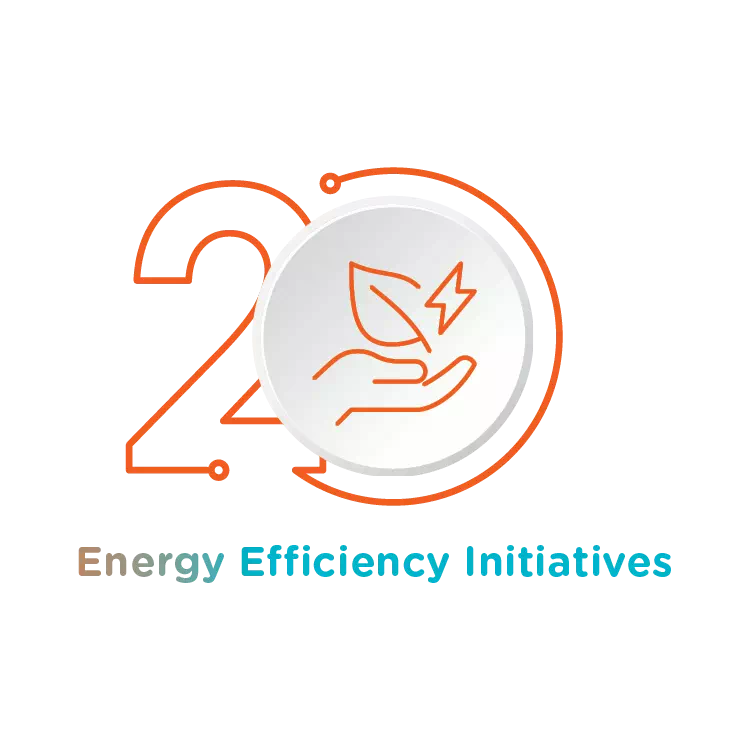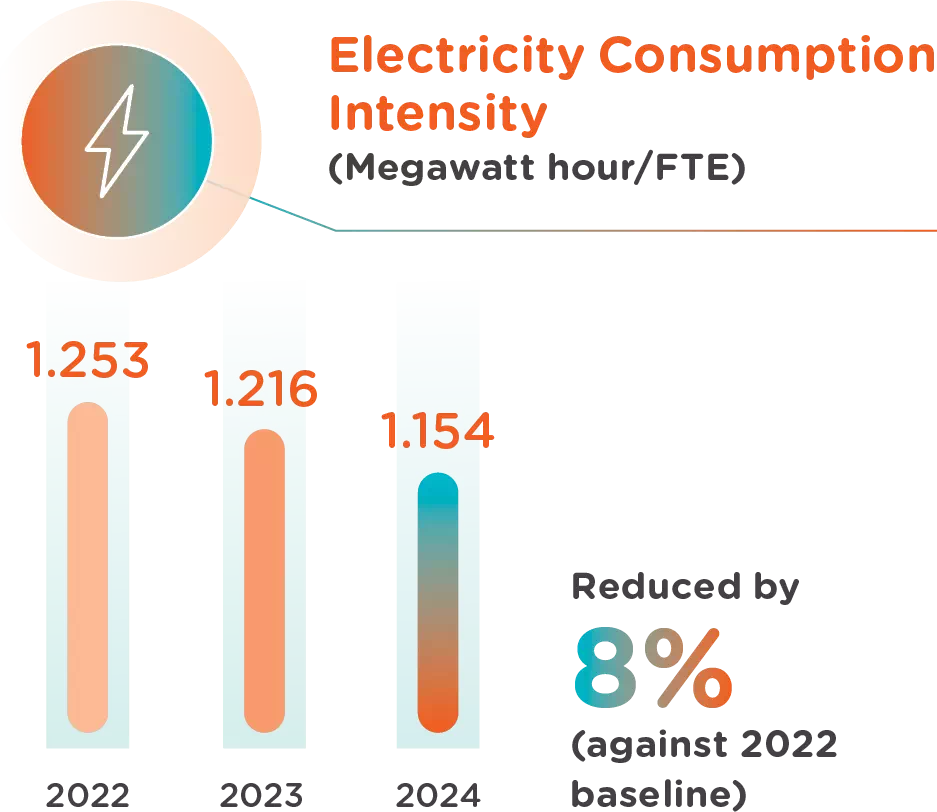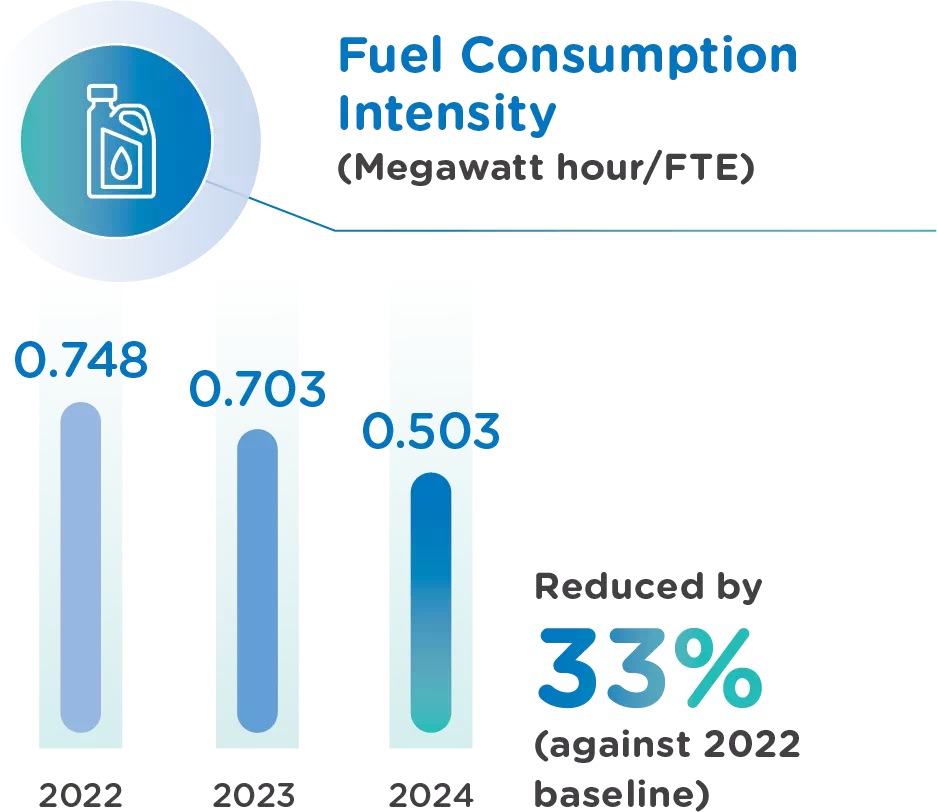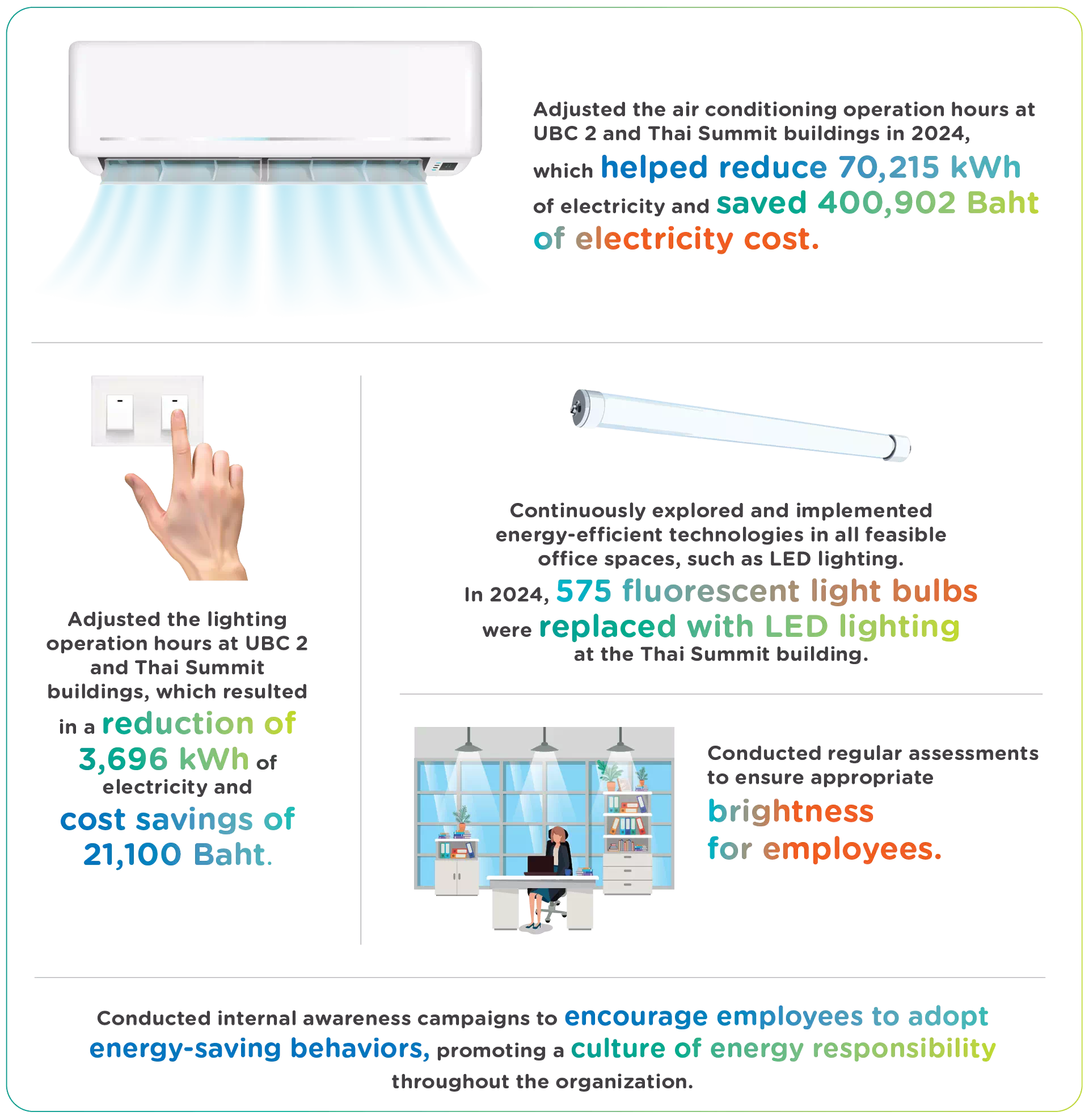Challenges and Opportunities
The growing global focus on sustainability and environmental stewardship presents significant challenges for businesses, including rising energy costs and stringent regulatory compliance. In response, KTC has prioritized operational eco-efficiency, aiming to minimize its environmental footprint and optimize resource consumption. These initiatives not only mitigate environmental impacts but also deliver cost savings, bolster the Company’s reputation for sustainability, and ensure continued competitiveness in the market.
Key Achievement
- Reduced energy consumption by 17.17% compared to the 2022 baseline through implementation of energy-efficient initiatives.
The Company fosters effective operational eco-efficiency by conducting robust energy efficiency management and initiatives





 Promotions
Promotions
 KTC WORLD
KTC WORLD KTC U SHOP
KTC U SHOP




 Login
Login


























